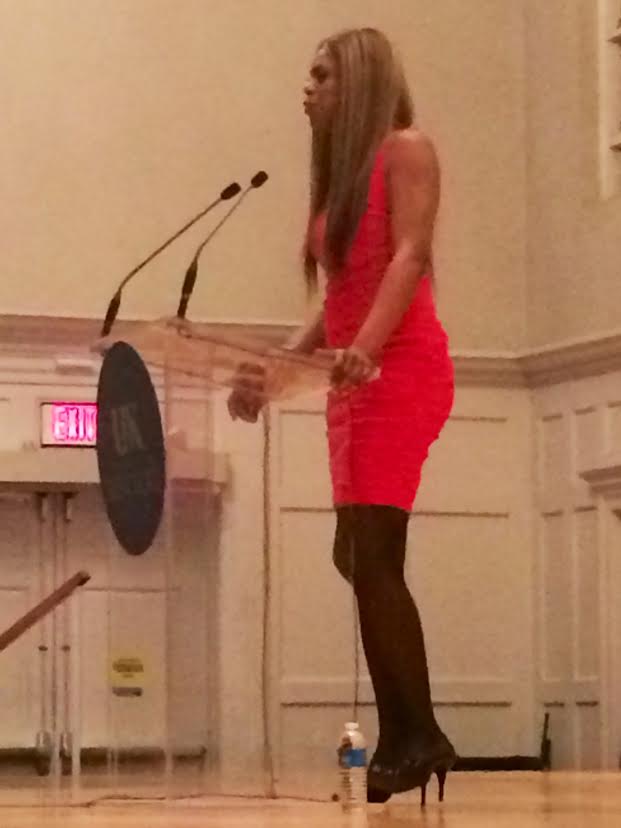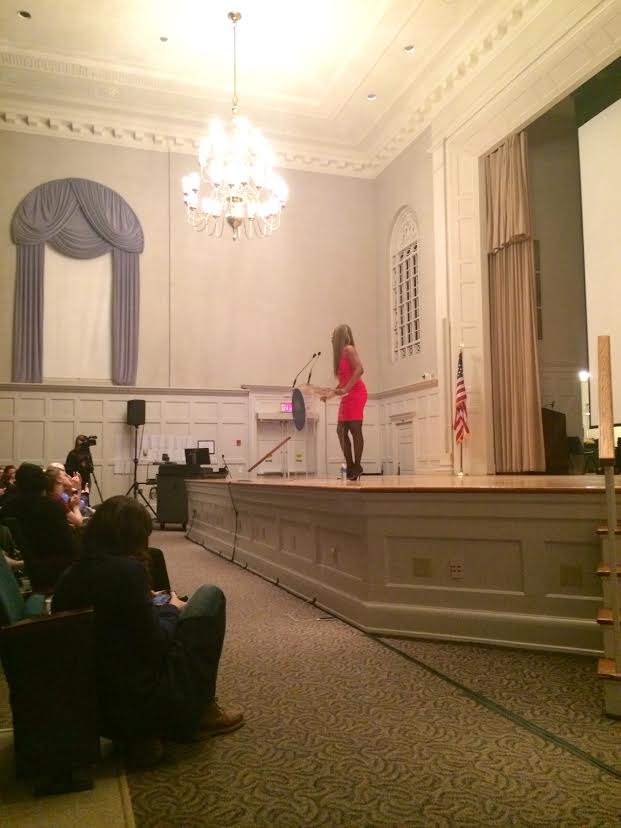On Tuesday, February 25th, the University of Kentucky welcomed Laverne Cox to Memorial Hall. Cox is best known for her role on the Netflix original series, Orange Is The New Black, and her role as an advocate and ally for the LGBTQ community. On the show, Cox plays a trans woman, just as she is in real life. The show in and of itself has provoked controversy and criticism for its frankness in dealing with themes of sexuality, gender, and race, particularly associated with the United States prison system. Having Cox present at a southern university, speaking out about trans activism and acceptance, is groundbreaking nonetheless. Her presentation, “Ain’t I a Woman?” drew from Sojourner Truth’s historical rhetoric regarding gender performativity. Cox’s narration of her life beginning in early childhood and moving through her surgical transition brought insight to the University of Kentucky campus that is rarely shared. While she is an actress, Cox’s presence in Memorial Hall was evident and she commanded a packed house. Because the event was non-ticketed, free, and poorly publicized, I feared for what kind of turn out this event would bring. To my surprise and elation, the Hall was filled with love and support for the actress and the audience members were filled with questions for the speaker.
Some of the most notable moments of the presentation came from the frankness Cox expressed when she explained her life, her hardships, and her successes. She began, “Being an African American, working class, transgender woman isn’t exactly a celebrated class.” Putting her story in context was probably difficult for many of the event patrons because very few individuals fall into such a class. Still, Cox’s eloquence in speech put an unfamiliar audience at ease. Cox explained her story by frequently referencing the time before she was a “gender nonconforming college student”, a concept which many students, even GWS majors such as myself, struggle with immensely. She continued with an important dialogue that was first specific to her story, and then was generalized to encompass all individuals. Regardless of who is involved, Cox explained, that “we can choose not to police people”. She continued by saying “oppressed people oppress people” and that community insiders belittle other community insiders despite shared alliances or allegiances. One of the final remarks of the all-too-short program, Cox simply stated, “Maybe if we get to know people as people, maybe all those misconceptions would just fade away.” It’s something to think about, no matter what battle you’re fighting.

